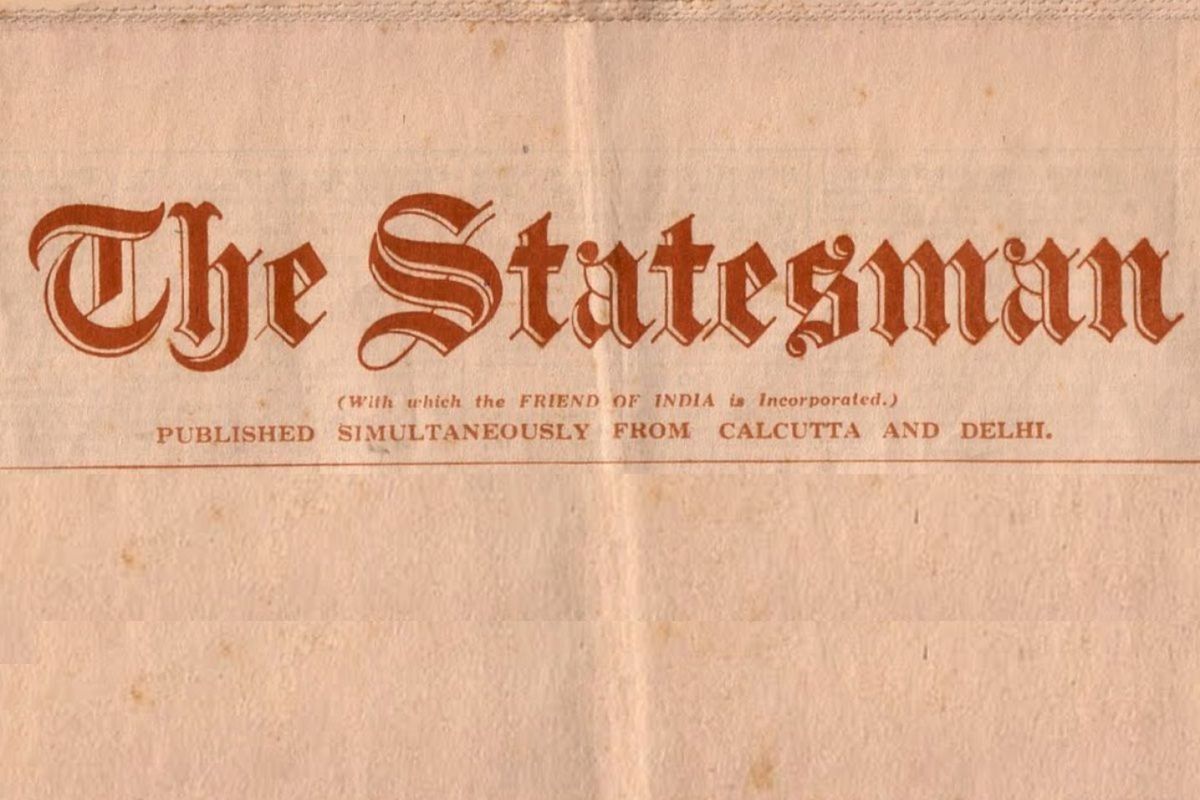A New Day, A New Dawn
There is a surprise for the readers. A special Poila Boishakh gift from none other than West Bengal chief minister Mamata Banerjee. Who has written a piece for this special edition.
On this day a century ago, these were some of the news items The Statesman readers got to read about India and the world.

OCCASIONAL NOTE
It is quite possible that Signor D’Annunzio may “aim” at the annexation of Dalmatia, but if so his political aims would seem to be analogous to Mr. Pecksniff’s land surveys. Dalmatia, according to one authority, belongs, ethnographically as well as geographically, to the Balkan Peninsula, and if that is so D’Annunzio would unquestionably find its reduction a very different matter from the surprise attack on Fiume. Too much importance need not, therefore, be attached to the rumour that he proposes to annex Dalmatia and attack Montenegro. This rumour, and the currency which has been given to it, are as likely as not a mere device to bring pressure on the Supreme Council through the Italian Government to recognise the Fiume adventure as a fait accompli, and it is more than probable that the reports of seditious movements in Italy itself, on the part of D’Annunzio’s adherents, are part and parcel of the same propaganda. It is hardly conceivable that D’Annunzio, rash and misguided as his outbreak at Fiume has shown him to be, is either so mad or so unpatriotic as to desire to unseat the monarchy. It is notorious that the whole position in Italy is one of highly unstable equilibrium, and that the anarchical element openly aims at reproducing the Russian tragedy in the kingdom of our sorely tried Ally.
CAWNPORE MILL HANDS ON STRIKE
Advertisement
CAWNPORE, NOV 27
The strike of mill hands in Cawnpore continues. The number of men idle is about 15,000. The strike today has extended to the Cawnpore Cotton mills, the other mills involved being the Woollen and Elgin mills, Muir and Victoria mills. It appears that registered notices were received by the Woollen mills and Elgin mills on Saturday afternoon that, failing certain demands being complied with, the men would strike work on Monday at 11 A.M. The Woollen mills had under consideration a revised and favourable scale of wages, which they hoped to have completely worked out by the 27th instant, but in spite of this the work-men elected to go on strike on Monday. The Woollen mills authorities, in fulfillment of the promise made, have today notified the enhanced rate of wages which has been brought into force in their weaving department.
THE REVISED INDIA BILL
At an extraordinary meeting of the Madras Liberal League yesterday a resolution was passed welcoming the revised Indian Reform Bill as a substantial redemption of the pledges contained in the Secretary of State’s announcement of 20th August, 1917, and urging the transfer of land revenue and irrigation to popular control, the increase of the Indian element in the India Council to half its strength, and the concession of some measure of responsibility in the Central Government. At a public meeting of nonBrahmins yesterday evening a resolution was passed expressing grave concern at the absence of provision for a non-Brahmin communal electorate in the Joint Committee’s recommendations and dissatisfaction with the method of settling the reservation of non-Brahmin seats.
IMPORTS FROM JAPAN
In the House of Commons at question time, Sir Auckland Geddes stated that skilled time workers in Britain were paid ten shillings to fifteen shilling for an eight-hour day at home and highly paid skilled works in Japan nine shillings for a twelve-hour day, but there were other factors to be considered. He saw no reason at present to fear that British manufacturers would be unable to hold their own in competition with the Japanese. The enormous increase in importation of goods from Japan during the war was wholly artificial. He deprecated the belief that these goods would hold British and other markets when they were again subject to British competition. There was already every indication that the markets which Japan had apparently gained during the war were hungering for British goods.
UNEXPLODED SHELL TRAGEDY
Seven British soldiers have been killed and three injured by the explosion of a German shell which was left on a famous battlefield – the brickfields one and a half miles north of Poelcapelle – covered with only a thin layer of earth. The men belonged to the 48th Labour Exhumation Company, and they lighted a fire on an apparently undisturbed part of the ground for the purposes of making tea. There was suddenly a terrific explosion from beneath the fire and the seven men were instantly killed. They had lighted their fire within a few inches of the unexploded shell. Arrangements were made to allot a special grave row to the seven men in Poelcapelle new British cemetery.
Advertisement